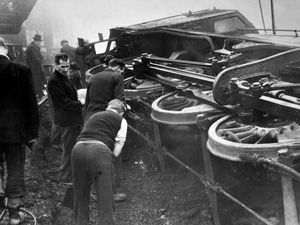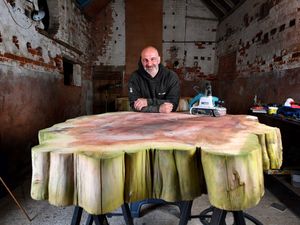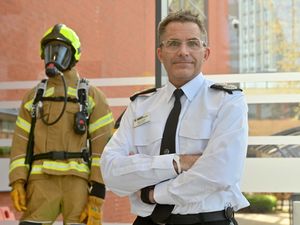Service with a smile as church rules changed
The Church of England has abandoned a law making Sunday services compulsory in all churches – and the local clergy seem to be on board.
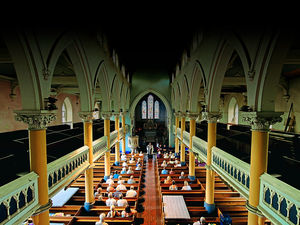
For generations going to church on a Sunday morning has been part of the weekend routine for many Christians.
But in a change to canon laws the Church of England's General Synod has voted to end a law which stipulates that weekly Sunday services must take place in every church.
The law has been in place in the 17th century, however it's one that for many years has been broken up and down the country.
"In many ways the change in the law has just formalised what we already do," says Reverend Matthew Stafford who heads up Wenlock Team Ministry covering the area around Much Wenlock in south Shropshire.
Revd Stafford is responsible for 14 churches and says the idea of performing a Sunday service at every one of them is unrealistic.
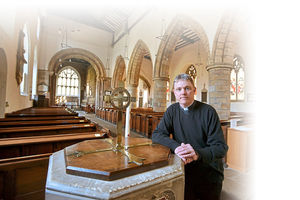
"There is now way you could do it," he said. "You would have to start services at 7am on a Sunday and go through to 7pm. To be honest it's not something that has been happening for 40 years now."
As well as the practicalities Revd Stafford says that changes in society, even amongst Christians has changed – and that going to church every Sunday is no longer part of the weekly routine.
"Sunday's aren't what they used to be," he said. "People don't go the church every week the way they once did. There are a number of reasons for this. One is that people's families are scattered far an wide now and people travel away to see them at the weekend, and that might not have been the case in the past. We are competing for people's time."
Revd Stafford says the church has had to take a different approach to reaching it's parishes and congregations and that includes holding events midweek.
The two laws that were amended by the General Synod include Canon B11, which requires morning and evening prayer to be “said or sung audibly in every parish church every Sunday”. This has now been amended to “in at least one church” in every group.
The second clause, known as Canon B14, previously required Holy Communion to be celebrated “in every parish church”. However, this has been substituted for “in at least one church in each benefice”.
Worship
A Church of England spokesman insisted that Sunday worship is still central to the ministry – but says that change in law is more aimed at those rural communities which have parishes with a number of churches.
Reverend Richard Hayes was formerly the priest in residence at St Alkmund's Church in Shrewsbury, and he says that for every church to hold a Sunday service would in fact damage the qualify of service.
"You would really be struggling and be dashing between villages and churches," he said. "It wouldn't therefore be a thoughtful, it would be rushed, and that is no way to conduct worship.
"But every church should be used for public worship on a Sunday once a month. We have many beautiful churches and we need to make sure they are getting used."
Revd Hayes says that there are a number of options for communities that do wish to hold a service every Sunday, even if it's not practical for a reverend to be there.
"If the people are confident in their faith then they can open the church doors and ring the bells themselves and have a service of prayer," he said. "They would be trained and would know how to hold a service. Obviously they would need a priest to hold a Eucharist or Communion, but they can hold a prayer service. That would allow people to still go to church, meet up and pray to God."
Revd Hayes was keen to stress that the change in the law was not a sign of a crisis for the church.
"It's not a disaster," he said. "It is just a more practical way of doing God's business in our time."
Reverend Neil Robbie is the head of the Holy Trinity in West Bromwich and he believes that for churches in more urban areas there is a different set of challenges to those in rural areas.
"The idea that you do your worship on a Sunday, go away, then come back again the next Sunday is long gone," he said.
"The church now has to look at how we form a functioning community where the needs of the community are met."
Holy Trinity currently runs what is called open church Monday to Thursday and during those days there are social events for the community as well as worship and prayer meetings. But he says issues like homelessness are real issues in the community that th chuch needs to help where it can to address.


